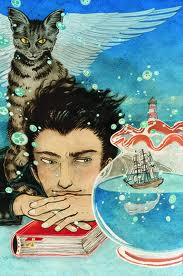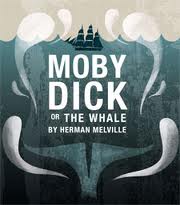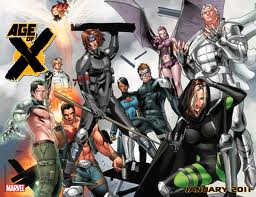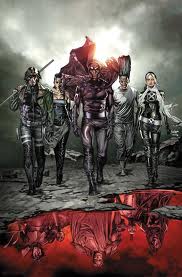The Many Lives of Mike Carey
By Dan Horn
March 20, 2011 - 20:39
The Many Lives of Mike Carey
 |
 |
| Mike: "Reality is a story. Personality is a story. And, therefore, and I don't think this is a metaphor, to control story is to control the world." |
Mike Carey: Aha, right.
How did the idea for a choose-your-own-adventure issue come about?
Mike: I have to give our editor, Pornsak Pichetshote, credit for this, because initially he said it would be very cool to do a choose-your-own-adventure story. He just threw it out there, and both Peter and I said, "Yeah! That's a great idea" – but without taking it any further. And then it occurred to the both of us that the logical candidate for that had to be Lizzie. In her, we had a character who had conflicting back stories, conflicting origins. The way we saw it--I've used this analogy before, but it works--it's like Schrodinger's Cat. In that thought experiment, the cat is both alive and dead.
Yes, until you open the box...
Mike: And when you open the box you collapse that wave front, and you've either got a live cat or a dead cat. Lizzie is still sort of in that state of "well, is she or isn't she?" What is her origin? Where does she come from? And what did Wilson do to her? So we just thought it would be a really, really cool thing to keep that ambiguity, to tell her story, to fill in her background, but at the same time leave it open so that she may or may not be from a fictional narrative.
Once you guys had that idea set in place, how long did it take for you and Peter and the group to put that issue together comprehensibly?
Mike: Um, a long time actually.
(Laughing)
Mike: Quite early on, we realized that you couldn't do it in a normal-sized issue. And, so, I said to Pornsak, "Can we have an extra page count?" He went to Karen, and Karen approved it. We got bumped up to basically one hundred-fifty percent of our regular page count. But, the more I talked to Peter about structure, and the more I tried to rough out the structure, the clearer it became that thirty-two pages weren't even going to get us close for a choose-your-own-adventure. You need to have a sense, even if it's an illusory sense, that there are lots of options, lots of branching paths, lots of possible endpoints. It's sleight of hand. There aren't that many endpoints for Lizzie's story. But, we needed the room to breathe, so I said to Peter, "Can we just turn the pages on their side, and make each page two pages?" Despite the fact that that meant doubling his workload (laughing), Peter said without hesitation, "Yes! Let's do it! Let's do it!" But I think we both underestimated the sheer amount of work that would be involved in making that structure work. It was crazy! We loved it. It was really exciting, but it brought us all to the brink of total collapse. There were so many logistical problems that we hadn't foreseen, and, right up to the wire, we weren't sure that we could bring it in.
Wow. Well, it was beautifully done by the end.
Mike: (Laughing) Thank you. Thank you, Dan. We're very proud of it, particularly the pages toward the end of the book where the two main narratives start to coalesce: the scene where Tommy is waking Sue from the Gorgon's curse, and Tom is trying to snap Lizzie out of her coma. There are a couple of absolutely beautiful pages where you have the two narratives laid over each other, and it could have gone wrong, and it didn't. It seemed to us that it all came together really well.
It did. And there were a lot of little things really I loved about that issue, too. One of my favorite parts about that issue was a very small detail on the first page, and that was the way the dialogue bubbles began to segue to the landscape format that the rest of the issue was in. Very clever.
Mike: Thank you.
I also had a good laugh at Wilson's thought bubbles.
Mike: (Laughing) Yes!
I thought that was in keeping with the transparent nature of a children's book.
Mike: Yeah, the thought bubbles were something that we had to have a summit conference on. We decided that we could get away with it in context.
I felt that it worked very well. I feel like that's what The Unwritten is all about: monumental ideas addressed by minute detail.
Mike: It's a side effect of the weird way the book is created: the fact that the roles of writer and artist are kind of elided. Peter is involved at every stage of the decision making and the plotting and the storytelling. I think that gives us a flexibility that you don't have in the more traditional model.
 |
| Mike: "I think, whether you believe Christ was the son of god or not, you have to accept that something enormous happened in Judea at that time." |
Mike: Yes.
Does that reflect a belief you may have that Christ's New Testament message is the ultimate anti-propaganda, or perhaps that it's the original Jud Suss, a story taken and twisted into its own antithesis by conservative extremism?
Mike: Wow, that's a good question, and it requires a very extensive answer. I speak as an atheist in all things. I used to be an agnostic, but I've hardened my position as I got older, which is not to say I discount the importance of faith and what can be achieved with faith. I think, as far as The Unwritten is concerned, one of our core themes is the incarnation of an idea, the suggestion that at a certain historical locus, at a certain place and time, an idea can be embodied in a person, in a thing, and that can suddenly become a pivotal point for the direction a society takes. Enormous questions of power and of historical order can hang in the balance at that point; they could suddenly become negotiable. I'm sorry--I expressed that very badly.
(Laughing)
Mike: I think, whether you believe Christ was the son of god or not, you have to accept that something enormous happened in Judea at that time. And whoever that man was, everything he said and everything he did acquired a significance which changed the world. We are, from our uncommitted position, very interested in that process. Does that answer the question, or not really?
Yes! Yes, it does. And an interesting thing that you brought up in that was the power of faith, which can easily be a parallel to the power of the mind. That kind of leads us into the "meta-focus" that you mention in The Unwritten, like a sort of "Force" from Star Wars.
Mike: (Laughing) Yes, it comes down to this question of "what is the world, and where do we live?" There's this very cool and very short poem by Walter De La Mare about Napoleon on the retreat from Moscow and it goes like this:
"What
is the world, O soldiers?
It is I:
I, this incessant snow,
This northern sky;
Soldiers, this solitude
Through which we go
Is I."
De La Mare is making a point about Napoleon's solecism, his ego. But I think that's true of everybody: we live in a world that we make ourselves; we live in a story, a narrative about the world, that we write for ourselves, and sometimes our stories are able to touch other people's stories and are fed by other people's stories. Reality is a story. Personality is a story. And, therefore, and I don't think this is a metaphor, to control story is to control the world. If you're in a position to influence those core narratives, then in effect you're rewriting the world. You're writing the machine code of reality.
 |
| Mike: "The whale is bigger than any living thing has a right to be... I think that's part of the power of the archetype." |
Mike: (Laughing) Wow, that was a good segue!
I want to talk about Leviathan first, though. Being a fan of Melville's Moby Dick, it was just as interesting to see how you structured the Leviathan story as it was to read the pick your adventure story. How did the idea come about to compartmentalize the story like Melville so often did?
Mike: Into those tiny chapters?
Yes.
Mike: I don't know at what point we decided that. I think that was just something that happened. It's a weird thing about Unwritten. It was true about Lucifer to a certain extent, but it's much more true of The Unwritten that some things just get added to the mix, and we can't remember afterwards who had that idea. Where did that come up? Sometimes we can look back through the email chain and pin it down, and sometimes we can't. But, yeah, we were definitely paying homage to Melville's structure in those chapters and the titles to the chapters. Like you, I'm a huge fan of Moby Dick. It's a wonderful novel that just sprawls out in all directions and illuminates things a million miles away from where you were expecting it to go. Peter and I had already decided quite early on that one of the stories that we would visit would be Moby Dick, and then we decided: "Yeah, it's probably going to be in the second year of the book. It's probably going to be immediately after Wilson's death." The weirdest kind of development there was to throw Thomas Hobbes into the mix. It was just one of those serendipitous things: we knew where we were going, and this was a perfect little metaphor, a perfect link to the point where we wanted to be. It's Leviathan: let's do a story that more than just Moby Dick; it's all the fictional whales you've ever heard of, plus it's Thomas Hobbes' Leviathan.
It's interesting to look back on the series as a whole and realize that the motif started much earlier with another amazing issue, "How the Whale Became."What do you think the significance of the whale archetype's thread throughout literature is?
Mike: Well, I think that if you look at the whale in Moby Dick it represents a particular way of looking at nature. Certainly for Ahab, it represents nature in a form that offends and angers him, a form that he feels he needs to reply to. There is no better way to conceptualize the raw power of the natural universe, the kind of power that escapes your ability to control or define it or to keep it in any measurable bounds. The whale is bigger than any living thing has a right to be. It meets your gaze, and to some extent you look away from it. I think that's part of the power of the archetype. I love the Biblical description of leviathan, the one that we quote in issue twenty-three, which basically describes it as something between the natural world and the supernatural world, something which is so huge, so powerful that it makes any claims of power that a human king could have seem ludicrous, and belittled and absurd. I think it's that. I think that's the source of the power of the image.
I would have to agree. Now, I know breaking the fourth wall is almost a comic book and fiction cliché now, but the idea that even a narrative, as in Leviathan, might be an obstacle or enemy to overcome was very interesting to me.
Mike: You mean at the end where Tom sort of breaks out of Moby Dick and faces the whale on a different level? That was the hardest scene to write in the whole thing, and, it has to be said, the hardest thing for Peter to draw. That double-page spread of Leviathan was one that went through three different versions. I think what we got works really well. In a way, we're getting to the limits of what you can show and tell. Did you read Swamp Thing back in the day when Alan Moore was writing it?
Yes, I've read a lot of Moore's Swamp Thing, although I have to admit to having a few volumes of it on my bookshelf that I've yet to read in their entirety.
Mike: The arc that I came on board for before going back and getting all the issues was the Crisis on Infinite Earths crossover, where Swamp Thing has to face the Brujeria. There's a splash page where the good principle and the evil principle meet, and everyone thinks it's going to be an apocalyptic conflict, and they just shake hands. Two giant hands, and they shake hands. It was a terrific concept, and the art could not carry it. You need those hands to be so big they escape your mind, and they're not. They're just two big hands on a page, shaking hands. I'm sorry--I'm not dissing Swamp Thing. That arc was absolutely magnificent, and Moore's run on the book was a huge influence on me personally. But, we knew that we were running the risk of descending into absurdity. It could be done in such a way that reader would feel a little bit cheated, a little bit foolish. So, we kept going back to that double-page spread and I think in the end we got it right.
Another question about that arc: what did the puppeteer's Cain and Able story mean in terms of The Unwritten's overall plot?
Mike: I'm going to duck that question.
(Laughing) I thought you might.
Mike: It's significant that Pullman does not let her finish that story, that he grabs the puppets and stops her. That was not pure decoration. Her choice of story was significant and the fact that it was not finished is significant.
With Lizzie ostensibly being the actual Lizzie Hexam of Our Mutual Friend, will Dickens be returning later in the series?
Mike: We'd kind of like him to, and the pages where Lizzie actually goes into the Dickensian world were gorgeous. I absolutely loved them, and I would love to go back to that. We were talking about how stupendous Moby Dick is as a fictional narrative. Some of my favorite novels are Dickens novels: I love Bleak House; I love Our Mutual Friend; I love Great Expectations; I even love Hard Times, although a lot of people feel that's too austere and grim to love. So, yes, we may very well be coming back to Dickens. There are other British novelists who we would like to drop in on. We have an Austen arc, which we've talked about.
Speaking of British novelists, you've mentioned before that a story about the Inklings, a group of such renowned and initial-prefixed authors and poets as C.S. Lewis, T. S. Elliot, and J. R. R. Tolkien, was in the works. Is that still something readers have to look forward to?
Mike: We'd still very
much like to do this, and we've talked about a whole bunch of ways of getting
it in. We now have a plan that seems viable, and there should be an
announcement shortly.
What's fascinating about the Inklings is that you have a unique group of people
which includes practicing writers, academics and philosophers, who share a set
of obsessions or preoccupations but who act on them in very different ways.
Tolkien and Lewis are usually considered to be the core of the group, for
obvious reasons, but people like Owen Barfield and Charles Williams are in some
ways even more fascinating. I'm reading Barfield's Poetic Diction at the
moment, and despite the dry title it's a visionary and mind-expanding work.
You can see echoes of it in Tolkien's writing, but it spreads way beyond
the Inklings. Saul Bellow cited him as a major influence, as did Howard
Nemerov. We sort of feel like we can't not go there.
Well, can you give us any hints of where we're going from here in The Unwritten?
Mike: Not into novels. Year three is not about novels. It's about other kinds of narratives. Also, the focus to some extent shifts from Tom to Wilson. We finally get to see some of Wilson's secrets exposed to the light, and his past, his back story, becomes a central concern.
 |
| Mike: "I like writing Legacy anyway, but this is the most fun I've had on the book." |
Mike: It's very different. I mean, I love the big crossovers. I loved working on Messiah Complex and Second Coming. It was an absolute blast, the process of spit-balling and baton passing. The way one person would come up with an idea and another person would run with it is a huge adrenaline rush. So, there's a lot of pleasure in being involved in a project on that scale. But, Age of X has been very different in that I originally planned it not as a crossover but just as an arc in Legacy. The more we talked and thought about it, the bigger it got. Then, we had this weird serendipitous situation where there was a gap between creative teams on New Mutants with Zeb Wells leaving it, and we had potentially three additional issues to use there. Daniel said, "Well, what you do if we approached it in that way?" I came up with a pitch, and Marvel approved it. They just kept giving me more and more support and more and more encouragement, and we ended up where we are now with the Alpha issue and the Avengers spinoff. It's been wild. I've really enjoyed the process of shaping and writing it. I like writing Legacy anyway, but this is the most fun I've had on the book.
Well, it definitely shows through. It's been a really interesting story so far, and it seems like it's only going to get better. Now, Age of X seems a pretty obvious allusion to the fan favorite Age of Apocalypse story. There are a lot of differences, like character design and of course Scott Summers' very different role at the onset of the story, but will there be any deliberate AoA integration into the story, or does the title simply convey the fact that this is an alternate reality story like AoA?
Mike: Yeah, it's that I think. The title is inviting you to view the story in a certain perspective. In a way it's kind of a fake-out because the longer that Age of X goes on, the more you realize that it's something different than what you original thought it was.
Yes!
Mike: So, the title “Age of X” could be taken as an open question more than anything else. Is this analogous to the Age of Apocalypse? Is this a reality that split off from our reality at a particular point because somebody messed with the timeline? Or is it something else?
I might hypothesize that it may not even be an alternate reality. (Laughing) There are a lot of mysteries slowly unraveling in Age of X. A lot of them are hinting at a strange correlation between the 616 reality and the Age of X reality. And one of the things that has kind of piqued my interest is that the blank pictures allude to an illusory effect--or Blindfold's inability to see as others see but she's still in her 616 form--Is there something strange creating a veil here?
Mike: All I can say is you're asking the right questions. I think we have--and this has nothing to do with me; I can't take credit for this at all--we have a perfect match between form and content, because you could not keep this mystery going for six months or eight months of Legacy. But, it's great for a really self-contained event which runs through two books very quickly and then has a payoff. Ideally it should feel like a wild ride where the book is answering the questions just ahead of you getting there yourself. But, yeah, there are a lot of mysteries, a lot of anomalies, and it's starting to look like whatever's going on might be different than an alternate timeline.
I can't wait to see what it actually is. So, now that Cable is gone from Earth 616 after Second Coming, I was wondering if we might see him pop up in Age of X.
Mike: Um... The answer is no, he won't be coming in there, and there's a good reason for that. I've been ducking and lurking a lot on message boards, and being evasive on my own Facebook page where people have asked specific questions about this. There's a reason for everybody who is there, and there's a reason for everybody who isn't there. There's even a reason why, in that scene in chapter two, when Rogue gets Professor X's power and the telepathic wave streaks across Fortress X, some people are hurt by it and some people aren't. There's a reason why some people seem less affected by it. Everything feeds into the same point, which is the solution to the big mystery, and so I kind of have to take evasive action when these issues come up.
 |
| Mike: "you're different; you're marked as different by your birth, by your heritage; you can't pass for normal; what do you do? Where do you go from there?" |
Mike: X-Men Destiny, yeah.
Can you tell us a little about that?
Mike: It was an opportunity that came up because Activision, who have the franchise rights to develop these games, wanted a Marvel X-Men writer to oversee story and dialogue for the game. They approached me and asked me if I was interested, and they already had an idea for the game dynamic, which was very exciting and which seemed to be to me like a really clever way of approaching it. It's to do with the core metaphor of the X-Men universe, or the core situation, rather. It's all about "you're different; you're marked as different by your birth, by your heritage; you can't pass for normal; what do you do? Where do you go from there?" It brings the player character to a series of decisions which will define their status in a universe that has two clear poles, if you like, the X-Men and the Brotherhood of Mutants. Where do you sit in relation to those big power blocks and what do you choose to be? So, yeah, I said I was interested, and I started talking to Activision and to Silicon Knights, who were doing a lot of the design work on the game. I met their lead writer, Madeleine Hart, who is a really talented writer and a great collaborator, and I got sucked in. It's been a very rewarding experience.
I can't wait to play it. So, you've got another Felix Castor book in the works, correct?
Mike: (Hesitantly) Yes... It's in the works, but I haven't written it yet. (Laughing)
So, we can expect a lull from Felix.
Mike: The situation I'm in, as far as my prose work is concerned--this is a great time. I've come close to complete physical collapse a few times in the last six months, but I'm really happy with what I've been doing. It's just a time of great opportunity and a time when I'm pushing outside my comfort zone and doing loads of wild stuff that's really exciting me. I pitched Castor 6 and I pitched a completely different novel at the same time, which not only was not Castor, but it wasn't urban fantasy, or horror, or supernatural crime fiction. It's a novel that has no fantastic elements at all, and my publishers liked it a lot. The contract eventually said, "Do that one first, and then go on to Castor 6." So, I've been working on that, but I've also been working on a book which I'm co-writing with my wife and daughter for a Canadian publisher, Chizine. I'm really enthusiastic about that, too. It's turned into a project that I'm very proud of, and it's taken me into new areas creatively.
Can you tell us anything about those two books?
Mike: I can't tell you anything about the non-supernatural thriller, because the publisher has a plan for marketing it which I can't sabotage. But the other book is kind of a modern Arabian Nights. It's a suite of short stories, a suite of independent stories, which unlike Arabian Nights builds into a novel. All of the short stories turn out to be an aspect of a central story. All of the protagonists, apart from one, are women. All of the protagonists, apart from one, are concubines who were part of a seraglio, and they are by violent events dragged out of that life and into a different life. You know the quote, "Revolution is the festival of the oppressed"? It's that. It's about powerless people realizing their power and exercising their power and hijacking and rewriting their own lives. The way that we're doing it, it's a really weird narrative formula, but it just seems to be working really well. The further we get into it, the more excited we get about it.
And this isn't the first time you've worked with your daughter.
Mike: That's right. Lou co-wrote Confessions of a Blabbermouth with me for Minx. It's the first time I've written with Lin. My wife has written three novels on her own account under the pseudonym A. J. Lake. They're fantasy novels set in the Dark Ages. Generally speaking, she goes her way, and I go mine. But this kind of grew organically between us. As all co-writing gigs are, it's a total time sink. It takes a long, long time to get things done, but it pays off. You end up doing things that you otherwise would not have done.
Well, after hearing your busy schedule, I'm seeing why you haven't shown up on the San Diego Comic Con guest list yet.
Mike: Yeah, I may possibly be there, but if I do it'll be because of the timing of X-Men Destiny. If there's something planned there in relation to the game, then Activision will extend the magic carpet and I'll turn up. But, yeah, I've never worked this intensively for this long, not since I was a teacher. Since the end of October last year, I've just lived in this room, sitting at this keyboard, and then I sleep, and then have breakfast, and then I come back to this keyboard. It's been a weird time, but it's worth it.
You've definitely been putting out some amazing stuff while sitting at that keyboard.
Mike: At some point I need to check to make sure the world is still there.
(Laughing) You feel like you're the last person on Earth?
Mike: Yes!
 |
| Mike: "It's a ridiculously overpowered team in some ways, but then they're going to be dealing with some pretty serious threats." |
Mike: Coming back to the Age of X stuff, Age of X is a self-contained event, and it will have a conclusion, a payoff, which I hope will satisfy readers. But it leads us into a near era for Legacy. With issue 250, Legacy becomes a different kind of book. It's still Rogue's book, but it becomes a team book again. Rogue is the core of a team, and it's a team that includes Frenzy, Gambit, Legion, Professor X, Magneto. It's a ridiculously overpowered team in some ways, but then they're going to be dealing with some pretty serious threats. I'm really happy writing that team. I’ve loved writing Legacy as a solo book, but my first year on X-Men, when it was a team book, was insanely pleasurable for me. It's very exciting to be writing an X-Men team again.
Related Articles:
Comic Con: Mike Carey
The Many Lives of Mike Carey
Mike Carey at Forbidden Planet
Creator Spotlight: Mike Carey
Mike Carey on "The Unwritten"
Mike Carey & Jim Fern - Crossing Midnight: Cut Here
Mike Carey's One-Sided Bargains
